Imagination is a magic carpet
Upon which we may soar
To distant lands and climes
And even go beyond the moon
To any planet in the sky
If we came from nowhere here
Why can’t we go somewhere there?
-- Sun Ra "Imagination"

I end up spending a lot of time in Jimbocho, the old bookseller's district in Tokyo. Hours and hours I rifle through piles and stacks of dusty pulp hunting for gems. Usually my luck is good, and occasionally I find just the book that I need. There are two shops in particular, both specializing in used English books, where uncanny things can happen. At times the course of my life takes bends and twists because of books that find me at these shops. This happened most recently in June.
I noticed Richard Ellmann's The Consciousness of Joyce on one of the shelves. I'd heard about this book before, so I picked it up and started to leaf through it, wondering if I should make the purchase. As I was reading, I became aware that three American(?) students had entered the store. A conversation between two of them caught my attention.
"Have you ever read Ulysses by James Joyce?" one guy asked his friend.
"No, but to tell you the truth it's pretty far down my list of books to read. I'm not that interested. I guess one day I'll read it just to say that I have."
Needless to say, this conversation made the decision for me. I went to the front desk and bought Ellmann's book, which is a study of Joyce's most famous novel, and on my way out I saw that the first guy was now alone, looking through the stacks. I looked over at him, smiled, and sputtered out "Read Ulysses" in a hoarse voice. "Alright," he said and smiled back.
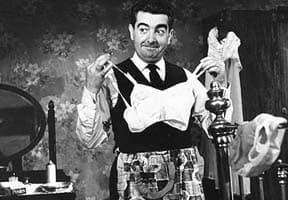
I have no idea if this guy decided to read Ulysses because of this brief encounter with a disheveled, preoccupied loon. And I have no way of knowing if he enjoyed it if he did. I'd like to think, though, that it changed his life. I remembered soon after this took place that Ulysses is also a novel of encounter. The situation synched with the story. For an instant, at a single intersection of space and time that went beyond both, I had become Bloom and he had become Stephen. And the moment passed.
After reading Ellmann's book, though, I also realized that this moment had greater depth than even this. Bloom is Odysseus. Stephen is Telemachus. For just that instant, I had entered myth. I was back home from a twenty year misadventure in which I had lost all of my companions and barely escaped alive. This was my first word of greeting and advice to my sole heir and confidante. And it loops back again.
How often does this happen to people everywhere, if they only noticed? This is not reincarnation or even metempsychosis. This is much more like putting on a mask, looking through its eye holes for a time, and then setting it down. When we look out through the mask, whether with awareness or not, we give the mask life. Just as we peer through it, whoever or whatever it represents peers through us. The archetype momentarily ruptures the surface.

Ellmann's book takes up this theme in relation to Ulysses. I knew, though, because of the weirdness in the shop that the book would also point to something else, something most likely unintended by the author, yet something that would show me the next step. That's how it always seems to work. The next stage arrived on July 16th, a few days before I published the last article. This will take some background to explain.
The subject of the present post is really anarchism, and Joyce's peculiar take on anarchism is a major theme of Ellmann's book. In a chapter called "Spacetime," Ellmann demonstrates how deep Joyce's anarchism goes. Ellmann explores this with regard to the question: If Bloom is Ulysses, if Molly is Penelope, etc. then who are the gods?
Joyce needed in his book an element that would correspond to the sense the Greeks possessed, of preterhuman forces governing human life. In the Odyssey the influence came from Olympus, where the gods were real, or almost real, and not simply counters. Joyce found in space and time powers as elemental as Neptune and Hyperion, but secularized. Our lives are on the one hand enforced movements from room to room, concessions to our surroundings. On the other hand, our lives are enforced surrenders to tick and tock, temporal exigencies which wear us down if we like it or not. We are creatures of our maps, and our watches.
Ellmann implicitly argues that Ulysses is a book of revolt against the tyranny of Space and Time. In the book's third chapter Stephen is walking alone on Sandymount Strand, a beach on the shore of Dublin Bay. In his head there rages a debate between Aristotle and Kant on one side and Berkeley and Jacob Boehme on the opposite, among several others.
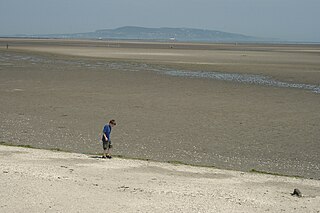
Stephen wonders if it possible to transcend the categories of Space, the "ineluctable modality of the visible," and Time, the "ineluctable modality of the audible," in order to directly experience what Boehme calls, "the signature of all things." This, Stephen realizes, is the true domain of all poets.
He closes his eyes as he walks and contemplates the vanishing of the sensory world and its soul-stifling limitations. He asks himself:
Am I walking into eternity along Sandy mount strand?
But he is not convinced. He knows that he is kidding himself. His imagination has not yet become a faith. He opens his eyes, wondering in jest if all will be a "black adiaphane," an endless, timeless nothing of infinite potential. And yet he does not really expect this. He opens his eyes:
See now. There all the time without you: and ever shall be, world without end.
Space and time reassert themselves as the ultimate barriers to the individual imagination. This evidence of the senses would appear to end the debate. Stephen knows, however, that this "proof" is unsatisfactory. The senses, and even reason itself, are unreliable and incomplete. His soul still longs for something more. The debate within himself and with others continues throughout the book. Eventually there is resolution, at least temporarily, in the most dramatic manner towards the end of the book.
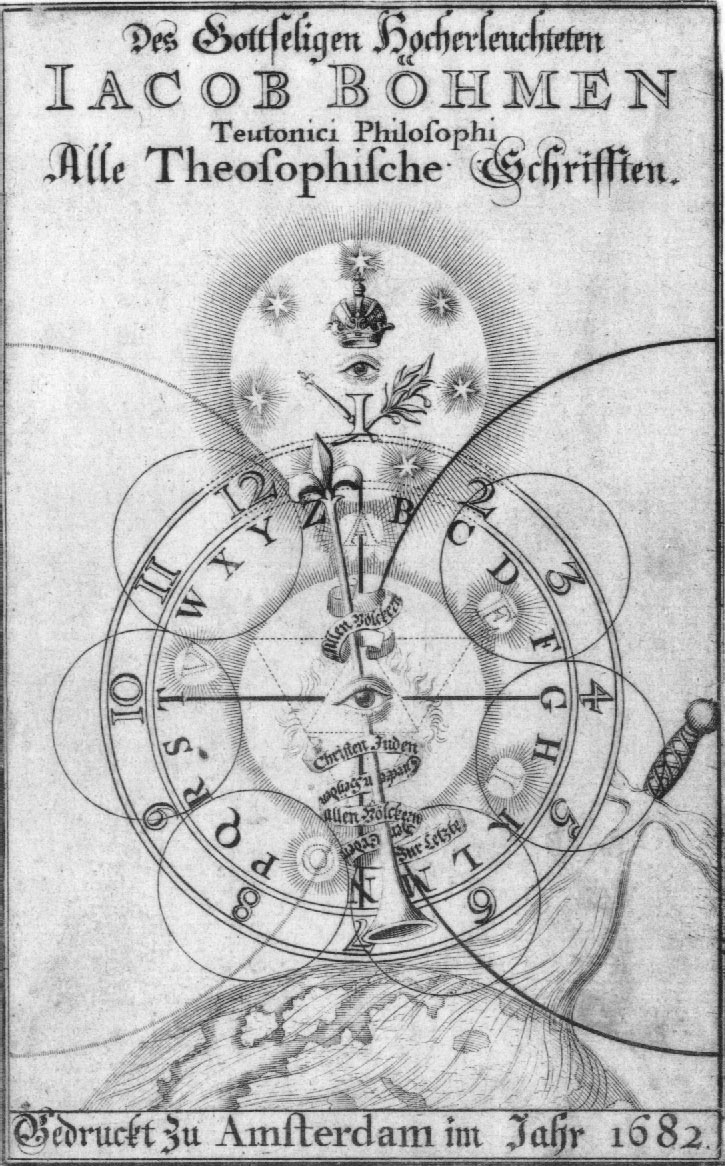
Ellmann explains that this climax is directly foreshadowed in the second chapter. While ostensibly teaching schoolchildren, Stephen's mind is already churning over the questions he would more deeply explore on Sandymount. He envisions a Blakean end of history, the collective entry into the eternal:
I hear the ruin of all space, shattered glass and toppling masonry, and time one livid final flame. What's left us then?
He can contemplate the overthrow of space and time, the end of bitter rule from Olympus, but as he demonstrated on the Strand he cannot yet enact this. Ellmann points out, though, that these words are prophetic. Space and Time do get overthrown. Eternity does burst through. And this was where things began to get very weird for me personally.
In the "Circe" episode, all of the old categories are cast down. Before this episode Dublin is revealed to be a wasteland. There is drought. There is an epidemic of hoof and mouth disease. Desires are unsatisfied, women labour long but cannot give birth, and both the politics and culture of Ireland are shown to be fully repressed by Empire. Suddenly, though, clouds form and a deafening thunder claps. The rain showers down, Mina Purefoy (pure faith) gives birth to a son, and fertility triumphs over sterility. Stephen and his friends rush into the street in wild glossolalia and drunken revelry.
In the second half of the book, these premonitions begin to be realized. Time and space, once so firm and masterful, begin to crumble, and both continuity and contiguity are reduplicated. The bonds that keep things next to or before and after each other are loosened, objects and creatures appear from nowhere and events that should be prior are subsequent and otherwise disarranged.

Bloom and Stephen are drawn into the inescapable lure of "Circe," a red-lit Walpurgisnacht. Here, anything goes and all boundaries dissolve. The visions begin. Stephen is visited by the emaciated, corpse-like ghost of his mother, "raw head and bloody bones." She inflicts him with painful darts of guilt, for not believing in the Roman Catholic faith, for refusing to pray beside her deathbed.

Quickly, Stephen appears to realize that this wraith is much more than just the ghost of his dead mother. She is the phantom of restriction. She is the embodiment of the tyranny of time and space, Church and State, the "laws" of physics -- Blake's "vegetable glass of nature." He first shouts his defiant refusal:
The intellectual imagination! With me all or not at all. Non serviam!
I will not serve! There is no greater expression of anarchism. And what is the authority for this cry of utter disobedience? Nothing less than the intellectual imagination. And yet still the cloying pleas from the dead to repent and conform persist. He then strikes out violently with his staff, at once eradicating the demon of denial and shattering a chandelier. And this is the moment when prophecy is fulfilled, history ends, and my mind is blown sky high:
(He lifts his ashplant high with both hands and smashes the chandelier. Time's livid final flame leaps and, in the following darkness, ruin of all space, shattered glass and toppling masonry.)
Boehme, Blake and Berkeley have won out over Aristotle and Kant. Matter is revealed to be just a facet of mind. Imagination is victorious. This in itself is sufficient to get the fine neck hairs bristling, but exactly at this point in Ellmann's book the earth opened up and was about to swallow me whole. Ellmann quotes the above passage on page 66, contrasting it with the almost identical quote from the second chapter. In the copy of my book, though, in the margin right beside this passage, which is also marked with a vertical line, someone had handwritten in pencil:
ATU XVI
Eh?? Any Crowley fan will recognize this as as the 16th trump or key in his Book of Thoth tarot deck, the Tower. And anyone fitting this bill would also realize that only a Crowley fan would write such a thing. This blew my head for any number of reasons. I had just been making a clear connection between Joyce and Crowley for a post I would publish on July 20th. I had also been reading Crowley's Moonchild, in which the Tower card prominently features. I felt as if this was written for me alone.

I discovered this bit of marginalia on the morning of July 16th, while reading Ellmann's book in the train on my way to work. I nearly had to get off the train to take a walk. July 16th, of course, matches with with Atu 16, and besides being a month after Bloomsday, it is also a profoundly sync-rich date in itself. I have written about this date previously in this blog.
Finding this, nearly the only marginal scribble in a book that I had bought under weird circumstances about a month before, only confirmed the fact that I was meant to go down these obscure passageways.
I have also written on this blog how the Tower trump is connected to 9/11. "ATU XVI," tied to a passage on "shattered glass and toppling masonry," has obvious resonances to 9/11. What this means, though, is that 9/11 is also an echo, from this perspective, of Stephen's smashing of the chandelier. The veil was rent on that day. Very paradoxically, perhaps, on one level history ended on 9/11. The Twin Towers were Time and Space.

Crowley's explanation in The Book of Thoth on the meaning of Atu XVI contains very similar themes:
Briefly, the doctrine is that the ultimate reality (which is Perfection) is Nothingness. Hence all manifestations, however glorious, however delightful, are stains. To obtain perfection, all existing things must be annihilated. The destruction of the garrison may therefore be taken to mean their emancipation from the prison of organized life, which was confining them. It was their unwisdom to cling to it.
Crowley associates this unsettling doctrine with Shiva, the Destroyer, whose sign is that of Nothingness. Joyce also plays with these ideas directly. As he strikes the chandelier/wraith with his ash staff, Stephen shouts out its name: "Nothung!" This is the name of Siegfried's sword in Wagner's Ring Cycle by which the Germanic hero overthrows the tyranny of the God Wotan or Odin, the equivalent deity to Rudra or Shiva in India. And in a Joycean pun, Nothung is clearly Nothing. The old order is ending and everything is being cast down, even death. Stephen takes on yet another mask.

This act is repeated with far less violence in Finnegans Wake:
He lifts the lifewand and the dumb speak.
--Quoiquoiquoiquoiquoiquoiquoiq!
Can I assume, then, that the unknown Thelemite who read Ellmann's book at some point before me was directly referring to 9/11? There is no way of knowing this. The paperback edition of my copy of The Consciousness of Joyce was published in 1981. Who knows how many people read this book before me, or if "ATU XVI" was penciled in before or after 9/11.
The only other mark I noticed in the book, a little later on page 70, was next to a passage containing Bloom's own vision in the "Circe" episode. He sees his deceased son Rudy, not as the "mishapen dwarflike creature who died at eleven days" but as a "perfect eleven-year-old boy." In the margin beside Ellmann's passage, with what I assume to be the same pencil, is written: "11!"
Now, is this because my unknown Thelemite was seeing the parallels to 9/11, or was he/she only remarking on Crowley's own fascination with the number eleven? As it is stated in The Book of the Law (1:60):
My number is 11, as all their numbers who are of us.

This all raced through my head while sitting on the train. As I got to work, though, the connection seemed confirmed. In my first class one of the students was wearing a white t-shirt with the words "Manhattan NY" and the outline of an apple with a photo of the New York skyline within it. The weird thing was that it was a pre-9/11 photo with the Twin Towers in central position and lined up with the vertical lines of the N in "NY." I excitedly asked him about the shirt, and he didn't seem to think it was any big deal. He was shy that I pointed it out.
The next day, July 17th, a Malaysia Airlines Boeing 777, MH17, was apparently shot down over Ukraine. In addition to making the obvious link to MH370, the Malaysia Airlines Boeing 777 that disappeared in March, many sources connected this incident to 9/11. Apparently it was the deadliest plane crash since 9/11, and in conspiracy circles the temptation to identify this as another false flag, like 9/11, was irresistible.
But what does 9/11 have to do with anarchism, even in the profound sense that Joyce is applying to it? Clearly the crimes of 9/11, regardless of who supplies the narrative, were not carried out by anarchists. They also did not lead to anarchist ends. Superficially 9/11 appeared to be attack on the existing control structure. In the end, though, 9/11 only expanded and more deeply entrenched the coercive capacity of the power elite. 9/11 allowed the police state to come out of the closet.
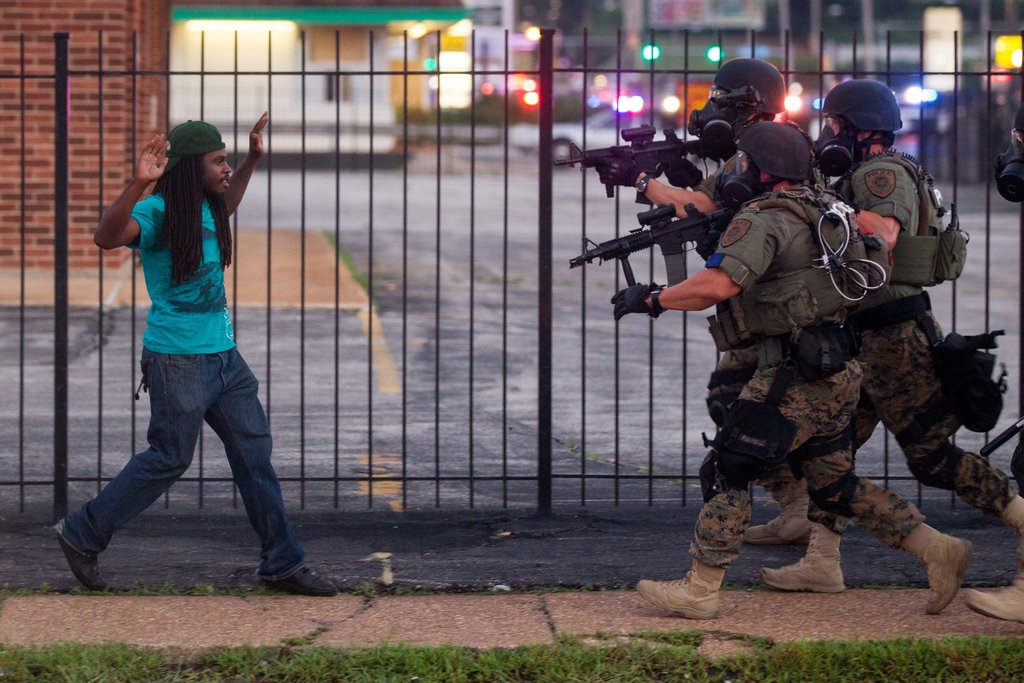
In another sense, however, 9/11 was archetypal. However it was orchestrated, and whether this was intended or not, it too was a fissure into the eternal. For me, and I know I am by no means alone, time and space did end for a brief but measureless moment on that day. Like all such moments, and they are of the same quality yet very different scale and intensity of my experiences in the bookshop and on the train, it stripped away the illusion. People speak of "waking up" on 9/11 and I think that this is actually what they mean.
These moments, Joyce's epiphanies or Pound's luminous details, are at the core of this deep anarchism, or what might be called hermetic anarchism. Or perhaps we prefer to leave out the -ism altogether. From the perspective of conventional anarchism, which is usually strictly materialist in outlook, all of this looks dubiously abstract and unrealistic. Flaky even. Ellmann goes on to show, though, that it is not at all removed from the traditional concerns of the anarchist movement.
Ellmann notes that Joyce's brother Stanislaus recorded that James was fond of quoting a line of Blake's: "the king and the priest must be tied in a tether." This is classical anarchism and both Joyce and Blake were clear devotees to this passionate, anti-authoritarian sentiment. Blake advocated that each man should be the king and priest in his own house. Stephen echoed this feeling in his confrontation with the British soldiers in Ulysses. The State and the Church are primarily in our minds, and it is here, first, where they must be tethered.
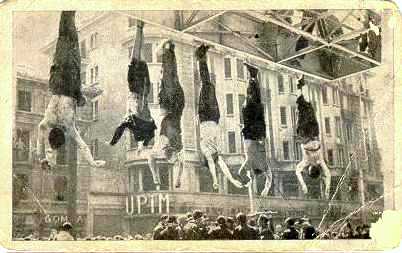
Ellmann points out that both Joyce and Blake found an expression of this idea in Dante. It is a thread that runs, as we'll see, through the whole poetic tradition. In The Divine Comedy, both the crown and the mitre are set upon Dante's head before he enters Paradise. Both of these powers are fully taken on by the individual as he or she encounters eternity. As Ellmann explains:
The priest lays claims to an eternity of time, as the king if he could would rule over infinite space; and against these forces, anthromorphized in earthly authorities, Stephen and Bloom have to muster their own forces.
In more contemporary terms the King is the State, the obvious ruler of Space. The Priest is not as clearly paralleled in our essentially secular societies, but the Corporations, being the pushers and pimps of the dominant religion of consumerism, are well suited to represent the lords of Time. Work and Scientism also conspire to bind us in segmented and suffocating Duration.
Blake is explicit on how these forces must be overthrown. The most powerful weapon we have is the imagination. Everything in our culture is geared towards convincing us to doubt or trivialize this all-important faculty. Let Disney imagine for you. We are told, likely more from friends and family members than by the authorities, that this way of thinking is unrealistic, a waste of time. Even "anarchists" scorn and ridicule the idea that the imagination can lead to liberation. Blake, however, was unequivocal:
The world of imagination is the world of eternity. It is the divine bosom into which we shall all go after the death of the vegetated [i.e. mortal] body. This world of imagination is infinite and eternal, whereas the world of generation is finite and temporal. There exist in that eternal world the eternal realities of everything which we see reflected in this vegetable glass of nature. -- A Vision of the Last Judgment
This should not be interpreted as mere Platonic dualism. Blake also taught that the body is indistinguishable from the soul. The material and spiritual worlds, the world of generation and the world of eternity, are one. Only in our perception are they divided. The split is epistemological, that of knowing, instead of ontological, that of being. And we know that knowing and being end up being the same. There exists a chaos of categories in which only the imagination can thrive. And this chaos is anarchy:
Anarchists have been claiming for years that "anarchy is not chaos." Even anarchism seems to want a natural law, an inner and innate morality in matter, an entelechy or purpose-of-being. (No better than Christians in this respect, or so Nietzsche believed—radical only in the depth of their resentment.) Anarchism says that "the state should be abolished" only to institute a new more radical form of order in its place. Ontological Anarchy however replies that no "state" can "exist" in chaos, that all ontological claims are spurious except the claim of chaos (which however is undetermined) and therefore that governance of any sort is impossible. "Chaos never died." Any form of "order" which we have not imagined and produced directly and spontaneously in sheer "existential freedom" for our own celebratory purposes—is an illusion.

This is from Hakim Bey's essay, "Ontological Anarchy in a Nutshell." Ontological anarchy is basically synonymous with the terms "deep anarchism" and "hermetic anarchism" from the present post. Perhaps it is better. Bey also introduces the term "utopian poetics" in the same essay. He describes it as:
The penetration of everyday life by the marvelous—the creation of "situations"—belongs to the "material bodily principle", and to the imagination, and to the living fabric of the present.
This very much agrees with Blake and Joyce and my own experience. This "utopian poetics," the penetration of the marvelous, the spontaneous upwelling of indeterminable chaos, is a current that runs through the entire poetic tradition. In, for example, "Another Weeping Woman," poet Wallace Stevens writes:
The magnificent cause of being,
The imagination, the one reality
In this imagined world
In the poem, the "weeping woman" is cut off from this "manificent cause of being" because she is consumed by grief at the death of her lover. "Black blooms" of existential poison occlude her vision and paralyze her imagination.
These "black blooms," caused by many things besides grief, are what keep us bound in what Crowley called, in reference to the Tower, "the prison of organized life." Another poet, Robert Graves, describes this prison in his magical book, The White Goddess.
‘Nowadays’ is a civilization in which the prime emblems of poetry are dishonoured. In which serpent, lion and eagle belong to the circus-tent; ox, salmon and boar to the cannery; racehorse and greyhound to the betting ring; and the sacred grove to the sawmill. In which the Moon is despised as a burned-out satellite of the Earth and woman reckoned as ‘auxiliary State personnel’. In which money will buy almost anything but truth, and almost anyone but the truth-possessed poet.
Reality is disenchanted. Nature is commodified. The very symbols of poetic truth have had their meanings stripped from them. This is the Waste Land.
This arrives at my central concern with this series of posts. How can we, as visionaries, as individuals who have had glimpses of the eternal, who know that if we pay attention these moments are not at all rare, stay true to vision? How do we avoid the obvious sham, the blatant trap, the absolute bullshit choice, of corporate one-world globalization vs. mutually intolerant tribal, national, racial categorization? How has this false choice even come up in "alternative" circles?
The Tower is tricky. Its destruction can signify the end of Time and Space, but this act can also bind us even more to these vengeful gods. For thirteen years we have traversed the Abyss. The veil may drop once again. Will we, enmired even more deeply in senseless, illusory categories, simply fall with it? Or, with the poets of chaos, have we realized that it has already fallen, that it continues to fall, and that we can see a light behind it?
